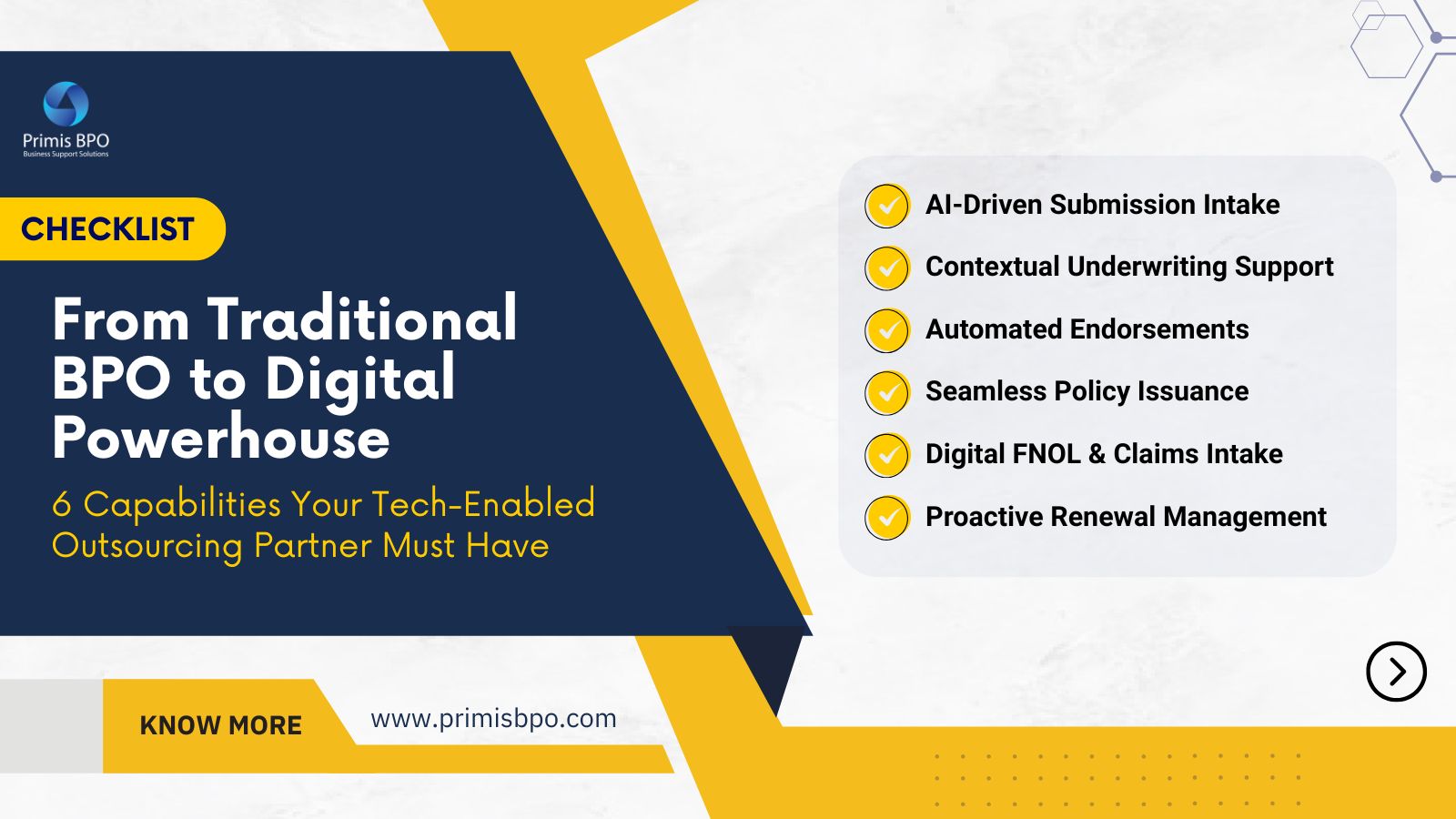
In today’s digital-first world, insurance customers are expecting something more than just quick and easy claims processing; they want an experience that is transparent, convenient, and digitized. And insurance businesses need to meet this expectation as, according to Salesforce, "66% of clients expect businesses to understand their unique needs and expectations".
Many insurers are continuing to use manual First Notice of Loss (FNOL) processes that result in inaccurate data, longer claims cycle times, and ultimately dissatisfied clients and customer churns.
But how will carriers ensure FNOL and claims are captured, processed, and settled quickly and efficiently? What will help them improve customer satisfaction and accelerate business growth?
This is where digital FNOL comes into the picture. By embracing new-age digitized capabilities, insurance carriers can accelerate the claims process, enhance efficiency, decrease costs, and improve customer journey. Besides, digitization empowers insurers to seamlessly collect relevant information and to update the claim system automatically.
This blog will highlight the challenges related to manual FNOL and how automation is making the process seamless.
Manual FNOL Challenges
Time-Consuming Process
Manual FNOL requires the claimant to provide all the necessary information, which is quite time-consuming. Moreover, data processing also takes enormous time as it involves human intervention to enter information into the system and process claims, leading to potential errors in the entire process.
Lack of Real-Time Processing
Manually executing the FNOL process is relatively slow, and this is the reason it does not have the capability of real-time processing. Here, the claimant's information is manually processed and entered into the system as per the human agent’s working hours. As a result, the claim processing is delayed.
High Processing Costs
Manual FNOL requires significant human resources and efforts to process claims, which can be pretty expensive for insurers. Oftentimes, these costs are passed on to policyholders in the form of higher premiums.
Inefficiencies in Fraud Detection
Manual FNOL can be inefficient in detecting fraudulent claims, as it relies on human judgment to identify potential fraud. This can lead to a high incidence of fraudulent claims, which can be costly for insurance carriers.
To be precise, the results of manual FNOL go far beyond just fraudulent losses. Data inaccuracies at the start of the claims process will also impact analysis and reporting. Besides, the back and forth of information due to bad data can significantly slow down the claims resolution process or even result in claims being inappropriately denied, leaving clients frustrated and ready to search for a new carrier at worst.
Reimagining FNOL Process with Automation
Automating the FNOL process is the first step toward a successful digital claims journey. It's important for carriers to implement solutions that streamline claims processing while offering a digital customer experience. This will provide your clients with ease and transparency throughout the claims lifecycle, leading to increased loyalty and retention.
Listed below are a few ways in which automated FNOL can accelerate business growth:
Enhances Efficiency & Accuracy
Automated FNOL can improve the efficiency and accuracy of the entire claims process, leading to better decision-making ability. This implies that customers are less likely to experience delays. Moreover, by leveraging automation, fewer errors will be made, and limited resources will be required for investigating false claims.
The ability to make accurate and quick decisions is essential for insurers who want to stay ahead of the competition.
Decreases Claims Turnaround Time
Automation in FNOL can not only speed up the processing of individual claims but can also significantly decrease the average turnaround time for all claims. Many a time, claims can be processed in hours rather than days.
This is because automating vital tasks such as data entry, document review, etc., requires fewer resources to process each claim. As a result, customers receive their payouts more quickly, and carriers can get back to business more quickly after a claim has been filed.
Self-Service Capability
Automated FNOL makes information easily accessible for customers online. Policyholders can log in to their account at anytime from anywhere and see the progress of their claims and any associated documents. This self-service capability gives clients a sense of control and transparency, leading to increased customer satisfaction and retention.
Improves Fraud Detection
Automation in FNOL facilitates insurers to detect fraudulent activities and false claims more effectively. In addition, automated FNOL enables carriers to track behavior patterns over time, which can help identify potential fraud instances, improve risk management and boost predictive capabilities based on data.
Reduces Operational Costs
Automated systems are more efficient, which means less time and money will be wasted on claims processes. In addition, automated FNOL solutions allow carriers to process a greater number of claims in the same amount of time, which decreases the average cost per claim overall. Do you know? According to a recent report, “Automation can decrease the claims cost by as much as 30%.”
Digitized FNOL Implies Better Customer Experience
Today, customers are more inclined towards adopting digitization and automation in insurance processes, including FNOL & claims. By digitizing the FNOL process, carriers can offer customers with a rapid and personalized experience. This implies that claim-related questions can be resolved much more quickly, and customers can get easy access to information.
As a result, frustration among policyholders is reduced and transparency is increased, thereby enhancing client satisfaction and retention.
Wrapping Up
Transforming the manual claims process into an automated journey will not only streamline the overall claims process but will also enable insurance carriers to provide a better digital customer experience.
So, what are you waiting for? It’s time to go digital. Get in touch with us today!
Recent Blogs

The AI FTE Approach to Property Risk Assessment

Optimizing Auto Insurance Underwriting Through Outsourced AI-Driven Risk Intelligence

[Checklist] From Traditional BPO to Digital Powerhouse: 6 Capabilities Your Tech-Enabled Outsourcing Partner Must Have

Outsourcing AI-Enabled Property Risk Analysis

Outsourcing AI-Powered Risk Assessment for Insurance Optimization